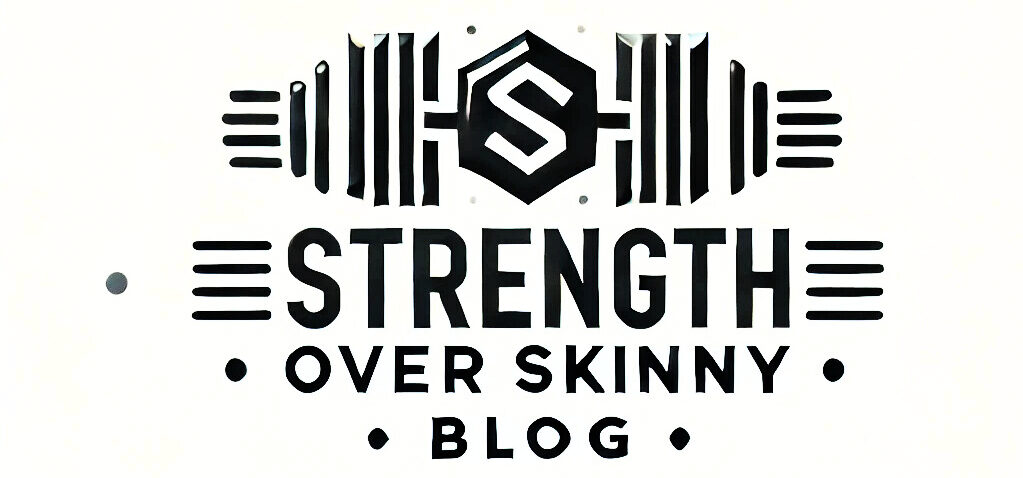Let’s address one of the biggest myths that keeps many women from lifting weights: the fear of becoming overly muscular or ‘bulky’. You’ve heard it before—the worry that lifting heavy weights will make you look like a man, with bulging muscles and a loss of your feminine shape. If this thought has crossed your mind, you’re certainly not alone. I’ve faced this fear myself. But here’s the reality: this fear is not only misplaced, but it’s also preventing you from achieving the toned, strong, and fit body you truly desire.
Imagine flipping through a fitness magazine and seeing women who are fit, strong, and confident. Then, you come across images from professional bodybuilding competitions—women with enormous muscles that can seem intimidating. It’s easy to think, “I don’t want to look like that.” But before you write off weightlifting, let me reassure you—you don’t have to worry about it.
The women in those bodybuilding competitions didn’t achieve their physiques overnight. It takes years of rigorous training, extremely strict dieting, and often the use of anabolic steroids—synthetic substances that boost testosterone levels—to reach such an extreme level of muscle growth. I’ve been lifting heavy weights for years, squatting up to 250 pounds, and I can tell you from experience that I’ve never looked like those professional bodybuilders. And neither will you, no matter how much weight you lift. And here is why.
Hormonal Differences 🧬
Testosterone is a key hormone responsible for significant muscle growth. Men naturally have higher levels of testosterone, which facilitates greater muscle mass development. Women, however, possess significantly lower testosterone levels—approximately 15-20% less than men. This hormonal difference makes it biologically challenging for women to gain substantial muscle mass through standard strength training routines.
Understanding the Science: Why Lifting Won’t Make You Bulky 🧠
The concern of developing large, masculine muscles stems from a misunderstanding of human physiology. Muscle growth, or hypertrophy, is influenced by several factors, with hormones playing a pivotal role.
Transforming a softer body into a firmer, more toned one can be particularly challenging for women, and a key factor is the hormone testosterone. You might wonder, “What does testosterone have to do with muscle growth?” Let’s clear this up.
Testosterone is crucial for muscle development because it aids in protein synthesis, the process your body uses to build and repair muscle tissue.
Men naturally produce much higher levels of testosterone than women, which significantly boosts their ability to build muscle. Essentially, testosterone signals the body to grow muscle.
Women do produce testosterone but in much smaller amounts. Even with intense weightlifting, women won’t experience the same level of muscle growth as men without increasing testosterone levels well beyond what is typical.
Here’s a common concern: Could taking testosterone supplements or other substances make women bulk up like men by accident? The reality is, men’s testosterone levels drop by about 1-3% each year starting around age 30, and even they face challenges building muscle as they age. So, despite the higher levels of testosterone, men still struggle with muscle growth over time.
For women, using anabolic steroids or extreme diets could potentially lead to unwanted muscle gain, but these methods I do not recommend due to their serious health risks, including cardiovascular issues, liver damage, and hormonal imbalances. Anabolic steroids are illegal without a prescription and dangerous for recreational use.
Natural testosterone supplementation, typically used to address hormonal deficiencies, is regulated and administered in controlled doses. Unlike anabolic steroids, natural testosterone won’t lead to extreme muscle gains; any excess is simply excreted by the body.
A study published in The Journal of Strength and Conditioning Research looked at how different weights in resistance training affect strength and muscle growth. It compared using light weights (less than 60% of the weight you can lift once, called 1RM) to heavy weights (more than 60% of 1RM). Researchers reviewed many studies where participants lifted either light or heavy weights until they couldn’t lift anymore (muscle failure). They analyzed studies that lasted at least six weeks and included healthy participants.
The results showed that heavy weights are better for building strength, but both light and heavy weights are equally effective for muscle growth (hypertrophy). So, if you want to get stronger, lifting heavier is better, but for muscle size, both light and heavy loads work similarly.
So, let’s put that fear to rest. Lifting weights won’t turn you into a bodybuilder or drastically alter your physique. Instead, it will help you develop a toned, firm, and strong body that enhances your natural shape. Embrace weightlifting, shatter those outdated stereotypes, and work towards becoming the best version of yourself. You deserve to feel strong, confident, and beautiful in your own skin, and weightlifting is one of the best ways to achieve that.
Training Intent and Nutrition 🍽️🏋️♀️
Achieving a “bulky” physique requires a deliberate and intensive approach, including:
- Specific Training Regimens: Engaging in high-volume, high-intensity weightlifting sessions consistently.
- Caloric Surplus: Consuming more calories than the body expends to support muscle growth.
- Supplementation: Often incorporating supplements or anabolic agents to enhance muscle development.
For most women, standard strength training combined with a balanced diet leads to increased muscle tone, strength, and improved body composition without excessive muscle gain.
The Benefits of Strength Training 🌟
Instead of causing unwanted bulk, weightlifting offers numerous advantages:
- Enhanced Metabolism 🔥: Increased muscle mass boosts resting metabolic rate, aiding in weight management.
- Improved Bone Density 🦴: Regular resistance training strengthens bones, reducing the risk of osteoporosis.
- Elevated Confidence 😊: Building strength fosters a sense of empowerment and body positivity.
Embracing strength training allows women to achieve a leaner, more toned physique while reaping these health benefits.
Conclusion 🏁
The fear of becoming bulky is unfounded for women engaging in regular strength training. Understanding the science behind muscle growth and recognizing the myriad benefits of weightlifting can empower women to incorporate strength training into their fitness routines confidently.
For a deeper exploration of this topic and more insights into the benefits of strength training, I wrote a book titled Strength Over Skinny: Transform Your Body and Transform Your Life, which is in the final stages of the publishing process.





